|
31/1/2023 0 Comments SWIFT History Masterclass Session 3 | Revision Strategies in History with Carmel Bones“Revision is for life. Not only for exam time.” The third SWIFT History Masterclass session was led by a popular personality in the History teaching community. Carmel Bones’ credentials testify to her competence and commitment to the profession. But being in the same room as Carmel – albeit virtually – her enthusiasm and passion for teaching, plus her tried and tested experience from a 30-year teaching career (so eagerly shared) were wonderfully apparent. You can read Carmel’s biography at the end of this report. Carmel’s session on revision comes at a point when reinvigorating this fine art is proving to be a challenge in schools. Carmel is clear that students need to get used to revision, that it requires mental effort by them as the learner and that they are responsible. Teachers can only do so much. Fostering independence and autonomy so that students are motivated to do their own revision is essential. “Students, your learning needs you.” Forget the idea of looking through folders and exercise books to recognise information. Take a blank piece of paper and retrieve the information from the forefront of your mind. Clearly, students have different starting points so cues and prompts maybe needed too. But by embarking on revision skills with the younger years it is natural for GCSEs. Get students into good habits of learning and memorising and retrieving - early. Rather than leave revision until Easter or when the exams are imminent, revise as you go along. Teachers need to be ambitious and do what they can do to support students, to get the information into students’ heads… and the best grades will ensue. Try this tested technique by Carmel’s daughter. Ciara felt that she had been “given” her GCSEs as a child of the Covid lockdown and did not know how to revise for her A Levels last year. So, she fast-filmed herself making old fashioned flash cards, and then tried to recall what she could by mind mapping and noting any gaps, before returning to the flash cards or text books as necessary. This method tested her memory and retrieval and enabled her to note her progress. Ciara’s History grade A* endorses her method. Worked for her! But with the obvious cautionary note to put distracting mobile phones and tablets away when revising! Referring to evidenced research. Check out The Great Teaching Toolkit that encourages hard thinking and embeds understanding. Lots of R words! Reinforce the information. Review and revisit as you go along. Retrieve. Revisit. Retain. Rehearse. The most effective revision is practising retrieval and calling the information to mind. Use it or lose it (as they say)! Also see Dough Lemov’s Teach Like a Champion - a study of the craft of teaching with successful outcomes. Memory is the residue of thought. Make it stick. On that sticky note, Carmel recalled her own Geography teacher guiding her to remember how liquid stays hotter for longer than the land. He literally made it sticky with the treacle sponge principle. Perfect (and delicious!). Other personal examples: PG Whips, à la PG Tips… to remember Parker, Grindal and Whitgift Elizabeth I’s three Archbishops of Canterbury. Use mental models that work for the students and ask them to share how they remember. With gusto and glee Carmel shared a plethora of top tips. Invite students to write a song, or a mnemonic to help them remember the material. Choral speaking: sing it back! Try the catchy Pomodoro Technique (for everyone, including Italophiles!). Use a timer for students to recall information. Register Wars. An idea from Lesley-Ann McDermott shared at the Schools History Project 2017. Tee up the students beforehand. Mix up the students’ surnames and when you call out their name for the register, they have to say a word linked to what you have been studying. Keep it live, active and low stakes and it very quickly shows any gaps. An added twist, include a buzz word that places extra emphasis as the golden word. Given the register is a legal document and students have to answer for their name high participation is guaranteed. Dare to devolve the revision sessions to the students. Get them to lead the class and ask questions and summarise learning. Create a supportive environment and motivate students to make them want to revise. Build class camaraderie and collaboration by planting a secret (student) spy who reports back at the end of a lesson on who has worked particularly well. Students look out for each other and it also means the teacher is not always on the case. Check out the technology. Use multiple choice questions with the free card activity plickers or Ankiapp flash card app. Get the students moving. Harking back to her childhood, Carmel suggested taking revision out of the classroom, say to the school hall. A different (novel) location can boost recall. Inspired by the 1970s children’s tv show “Runaround,” invite students to select multiple choice answers by standing on mat 1, 2 or 3. Make their thinking visible. Go deeper and controversial and work up to an essay question or debate. Another game. Bunch of 5ss. Demoed by willing volunteers, Becky, Paul and Andrew, who in a classroom situation would have been out at the front. Model the rules first: One asks the questions. One answers the questions. One counts the bunch of fives. Set the timer and let’s play! Name five types of cake… Fun either verbal and/or written, the game of 5’s creates an element of competition that students love. They see progress, are motivated and can spy any gaps for urgent revision. This can also be a paper-based activity as inspired by Karen Knight. More games. Create a simple fact board, 6x6 grid. If students land on a square they say five things about the topic. Tarsia puzzles that connect topics. The Bermuda triangle to fill in the missing pieces. Summarising pyramids of information with words and phrases visually themed for the time of year. So, lots of ideas to retain information, next to do something with it and look after it as if it is precious. Learning is a reiterative process. Turn it into pictures or diagrams. Encourage students to make it their own. Testing and study are interchangeable and highlights those important gaps. Get the students to mark each other’s own work. They will want to close the gaps in real time and it also stimulates discussion and pride in their work. Look at the derivation of words that can help to remember and embed subject specific terminology. In a lovely supportive way mirroring school and home, students’ families can get on board too as the teaching triangle. The Protégé Principle, of teacher, student + someone on their side at home who supports their revision. Who would have thought that revision could be such fun? Were it not for the confines of our hour session, Carmel would have clearly raced on with even more ideas and insights. But we were grateful for the time and thank Carmel Bones for being an uplifting and enriching History Masterclass session 3 speaker. We thank Becky Bailey, Executive Director of History of Westcountry Schools Trust for organising the SWIFT History Masterclass Series and of course, our delegates for their whole-hearted participation. Report by Jude Owens, PA to the SWIFT Executive Team Carmel Bones | Biography
Carmel Bones is an Honorary Fellow of the Historical Association. A regular conference contributor she spoke at the Historical Association National Conference in Bristol May 2022. During the lockdown, Carmel formed part of the national BBC Daily Bitesize lockdown team producing tailored content for home learning used by millions of families and collaborates extensively in schools across the UK and Europe focusing on all aspects of learning and teaching; real and remote. 2023 Sees the launch of the ReTeach History Podcast series with Carmel as host and two new BBC Bitesize GCSE History series focusing on USA in the 20th Century and Crime and Punishment Through Time. These followed her highly acclaimed ‘Explain This’ and ‘Cluetubers’ Series’ for BBC Teach. In 2020 she was listed in the prestigious Edtech50 for her innovative work bringing the historic environment to life through virtual visits as part of teacher and student webinars and was a finalist in the Teach Secondary Awards Best CPD Category 2022. Carmel’s secondary content work with Clickview and Hodder was nominated for the Bett Awards 2020 and Teach Secondary Awards 2020. Her work on curriculum design was published in Teaching History Magazine in December 2021 and she was appointed to the ReTeach Content Board. She has co-authored two Amazon best-selling Hodder books in the ‘My Revision Notes’ series for GCSE History. Carmel is proud to be a long-standing trainer and team leader for the Osiris Teaching Intervention leading the first secondary and whole school cohorts in Scotland.
0 Comments
27/1/2023 0 Comments SWIFT Events Newsletter | Issue 20 This issue includes a featured article and some highlighted programmes, courses and events. from our partners to support your professional development and enhance the work of your school. Simply click on the booking link, to the course or event you are interested in, to get more details or book straight on! Featured in this issue we have: Exeter Supply Partnership A service set up by schools, for schools with their interests and staffing at the heart of their operation. Highlighted Programmes:
Exeter Supply Partnership is a growing primary Teacher and TA supply service working with schools across Devon. In order to enable more schools to access their ‘not for profit’ services they are looking to recruit more teachers, teaching assistants and nursery practitioners across Devon and Torbay.
Three things that make ESP unique:
As part of our Diversity, Equity and Inclusion (DEI) commitment to creating a sense of belonging for everyone, SWIFT is working with Hannah Wilson, co-founder of Diverse Educators. Initially a grassroots network, Diverse Educators is now a training company working with all types of schools to support their DEI strategy and training needs, in the belief that schools are stronger, and can go further together, in collaboration with national and international organisations. VISION | Everyone is celebrated in every classroom in every school. MISSION | A collaborative community that celebrates the successes and amplifies stories of diverse people. VALUES | Promoting acceptance; increasing visibility; encouraging celebration; creating belonging and enabling learning. Diversity, Equity and Inclusion celebrates the nine Protected Characteristics identified by The Equality Act (2010) SWIFT is endeavouring to understand the needs of all the nine Protected Characteristics groups and seeks to improve a sense of belonging. As part of this pledge, we have created consistent branding and are creating new representative artwork and photo images as improved imagery on our website and socials that and humanises our community. DEI should be about celebration, not tolerance (as in the hero image below): For Diverse Educators, DEI is about the three Cs: Consciousness, Confidence and Competence. Diverse Educators will be providing training and support for SWIFT, our partners and schools; incorporating the development of our DEI Policy and Procedures, strategy and vision and we are embedding DEI through a partnership committee to leverage insights and diversify perspectives. Improving our DEI awareness and how we use inclusive language will increase our confidence and enable us to increase our competence to share within our team, and also help us to raise awareness of our shared goals and approaches with everyone we work with: our partners, school leaders and teachers, Early Career Teachers, Mentors, trainers and trainees. We want to breakdown any barriers so that everyone feels included. For our training events we are seeking to make reasonable adjustments to ensure accessibility and we have been striving to increase the diversity of speakers at our SWIFT conferences, Curriculum and Leadership Forums and CPD events. Last Autumn Term, we provided menopause training and maternity / paternity training and established a SWIFT Equality & Diversity Professional Community led by Ruhaina Alford, Executive Headteacher of The Carey Federation (find more information about the April meeting here | free to SWIFT members and £25 for other colleagues). We are reviewing our staff recruitment and retention policies so that everyone feels welcomed and a sense of belonging with equitable opportunities for career advancement. The number of people being promoted in education to senior leader positions is low, especially here in the South West, particularly for women and black people and as part of our initial teacher training responsibilities, we will be putting DEI at the centre of our new SWIFT SCITT. Ultimately, at the heart of our affirming, validating and celebrating diversity, equity and inclusion, we understand that this will positively impact on our pupils and young people and we welcome news of any interesting DEI work undertaken by our partners. 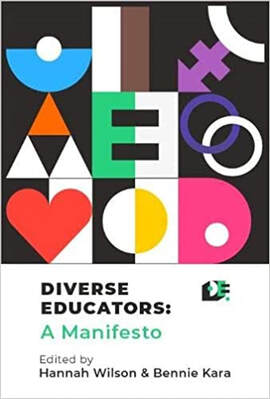 More Information and Resources To support the Diversity, Equity and Inclusion journey in your school, you can find lots of free resources on the Diverse Educators website, including a toolkit, a DEI Directory organised by the nine Protected Characteristics, and key words and acronyms. When scheduling events in your organisation, you can find a list of awareness and celebration days/weeks/months of religious and cultural significance. Listen to the #DiverseEd Podcast in which co-hosts Nick Kitchener-Bentley and Yamina Bibi interview a contributor from each of the 10 chapters of “Diverse Educators: A Manifesto.” For regular news and views, read the Diverse Educators blog. Report by Jude Owens, PA to the SWIFT Executive Team 13/1/2023 0 Comments SWIFT Events Newsletter | Issue 19 This issue includes a featured article and some highlighted programmes, courses and events. from our partners to support your professional development and enhance the work of your school. Simply click on the booking link, to the course or event you are interested in, to get more details or book straight on! Featured in this issue we have: Spring Leadership Forum SWIFT are committed to bring together leaders from all school settings in the area to connect with each other. Our Autumn and Spring Leadership Forums, as well as our Summer Conference, are some of the ways we fulfil this. Highlighted Programmes: · How to Teach Boys to Succeed in School · Masterclass Series · The Link Between Physical and Emotional Wellbeing · Dyslexia SEND Training · Events for your diary In this January issue and the first for 2023, ESW Associate & Strategic Leader of Teaching & Research Schools | Education South West, Roger Pope CBE reflects that "teachers would make great robins."
You can find out why in the newsletter link below. Back in the classroom, rather than the garden, you can also read about our continued work to build on success through our partnership, the key principles from the Making the Difference for Disadvantaged Pupils programme and Curriculum Leads can find out how to apply to be lead a workshop lead at our Spring Term Curriculum Forum and discover more about our sponsor, SchoolPro TLC's upgraded Data Protection portal. 5/1/2023 0 Comments Interview with How to Teach Boys to Succeed in School Programme Lead, Caroline Sherwood “We have a huge responsibility to make sure our classroom practice is effective, robust, challenging and rigorous.” Caroline Sherwood is currently Deputy Headteacher at Pilton Community College, and has taught at a range of schools across Devon and Somerset, as well as in Kent where she grew up. A passionate Teacher of English, Caroline teaches English and relishes her time in the classroom where she can share her love for literature. An aspiring writer in her own right, Caroline is a regular contributor to educational magazine, SecEd; writing articles on subjects including Teaching and Learning and Leadership and she is currently writing her own book on leadership. Caroline is excited to be leading our SWIFT How to Teach Boys to Succeed in School CPD programme with Mark Roberts, author of “Boys Don't Try? Rethinking Masculinity in Schools” and “The Boy Question: How to Teach Boys to Succeed In School.” 1. How did you come to be involved in the SWIFT “How to Teach Boys to Succeed in School” training programme? in 2017, I wrote an article for SecEd about the gender achievement gap, exploring how boys and girls assemble constructions of gender based on what they are exposed to in order to “fit” social norms. I have been interested in the topic of gender constructions for some time, including how we give preference to particular behaviours, interests, and the school subjects that girls and boys are expected to like (see: Gender Issues in School: What works to improve achievement for boys and girls, DCSF, 2009). It is interesting how these behaviours based on gender construction can impact on achievement. Recent studies suggest the environment we create for our children has the greatest impact on the way boys and girls learn and what they learn. So, as classroom practitioners, it is reassuring that teachers can play a positive role. It is not simply a case of being at the mercy of our genetics or, significantly, being limited by our gender. Our cognitive ability, personality, interests and preferences are not only determined by our gender. Rather, our response, consciously or subconsciously, to the environment, including the gender stereotypes to which we are exposed can make a difference. Research shows that both nature and nurture help to shape us. An interaction which biologists refer to as epigenetic. As classroom practitioners, we understand that our pupils are not always armed, as we are, with the critical tools to analyse, challenge or scrutinise information and what is presented to children by adults as fact, is often absorbed by children and young people as irrefutable and incontestable. As teachers in the classroom, we need to be careful not to pass on our inherited assumptions about gender to our pupils about what they are good or not good at learning. Children’s brains are significantly more pliable and malleable than adults’ brains, which means that what happens on a daily basis in your classroom shapes your pupils’ brains and ultimately their futures. We have a huge responsibility to make sure our classroom practice is effective, robust, challenging and rigorous. 2. As the programme facilitator, what are your success criteria for the How to Teach Boys to Succeed in School programme? The sessions will follow the content of Mark's book “The Boy Question”:
It is hoped that delegates will feel equipped to action sustainable change in their setting and we understand that this might vary from delegate to delegate depending on their context. A real strength of the course will be to provide space and freedom to ensure the learning and takeaways fit delegates’ context and this is where the experience of Mark Roberts will be valuable, given he is the expert and has invested time into research and his own personal experience. The programme will, I hope, answer some big questions including, how to get boys reading more; as well as considering a curriculum best placed to help boys to acquire powerful knowledge. Running in parallel with the programme we will explore the EEF implementation guide and the following foundations for successful implementation: (1) Process: treat implementation as a process, not an event. (2) Environment: create a leadership environment and school climate that is conducive to good implementation. (3) Explore: define the problem you want to solve. (4) Prepare: create a leadership implementation plan, judge the readiness of the school to deliver that plan, then prepare staff and resources. (5) Deliver: support staff, monitor progress, solve problems, and adapt strategies as the approach is used for the first time. (6) Sustain: plan for sustaining and scaling an intervention from the outset and continuously acknowledge and nurture its use. “Schools are learning organisations. They continuously strive to do better for the children and young people in their charge. In doing so, they try new things, seek to learn from those experiences, and work to adopt and embed the practices that work best…Ultimately, it doesn’t matter how great an educational idea or intervention is in principle; what really matters is how it manifests itself in the day-to-day work of people in schools.” (EEF) There will be opportunity for discussion about the actual problems faced by teachers in their schools, with time to think about how to implement strategies and how best to do so based on research. 3. What do you hope to bring to the programme from your own classroom experience in motivating the boys that you teach? I do not claim to be the expert. But I am proud to say that I am relentlessly looking for ways to improve - both in the classroom and as a school leader. As a Teacher of English, I ensure that all my students, including the boys that I teach produce consistently good academic writing. Mark Roberts is best placed to discuss this and it is, in fact, something that we will be exploring on the programme. Explicitly teaching boys at every stage of the writing process; focusing on word, sentence and whole text level work; and ensuring students - including boys, of course - have lots of opportunities to engage in challenging and successful deliberate practice. 4. Are you looking forward to working with Mark Roberts on the programme? Yes! As an author, Mark Roberts is an inspiration for me as it is where I want to be, as I enjoy engaging with academic research and writing and having a voice through my writing. At the time of Mark’s first book, “Boys Don't Try” we had the Covid pandemic and this inevitably strengthened the focus on operational priorities of keeping children safe and this focus on boys’ underachievement slowed down or stopped. So, Mark’s next book, “The Boy Question” comes at a good time to pick up again with purpose and for teachers and leaders to start making changes to tackle underachievement. I like that the book directly tackles some of the real challenges schools face every day, and provides tips for teachers. This has become all the more important to me in my role as Deputy Head, as I feel a sense of responsibility for all students we serve. 5. Finally, with your enthusiasm for teaching English, how do you foresee sharing this love on the programme? I love that the programme is essentially a book club with time and space to engage with academic texts, meaningfully and critically. Leaders are readers, so it is important to engage with academic texts. At Pilton I am proud to have set up a reading group for our leaders to network and share an academic reading focus. Our middle leaders are currently reading “Fierce conversations” by Susan Scott and our SLT are reading Mary Myatt’s “Huh: Curriculum conversations between subject and senior leaders.” I know that colleagues find these dedicated discussion times to be valuable and insightful and are keen to put the thinking and theory into practice. We thank Caroline for explaining more about her interest in supporting boys to succeed and we thank her in advance for leading our How to Teach Boys to Succeed in School programme with Mark Roberts. The programme starts in February and will focus on the following themes:
Interview by Jude Owens, PA to the SWIFT Executive Team |
SWIFT News
|
SPONSORED BY
Join us, be a part of our SWIFT community |
© COPYRIGHT 2022 SOUTH WEST INSTITUTE FOR TEACHING SWIFT. ALL RIGHTS RESERVED | Website by brightblueC
VIEW OUR PRIVACY NOTICES | VIEW OUR COURSE T&CS
VIEW OUR PRIVACY NOTICES | VIEW OUR COURSE T&CS

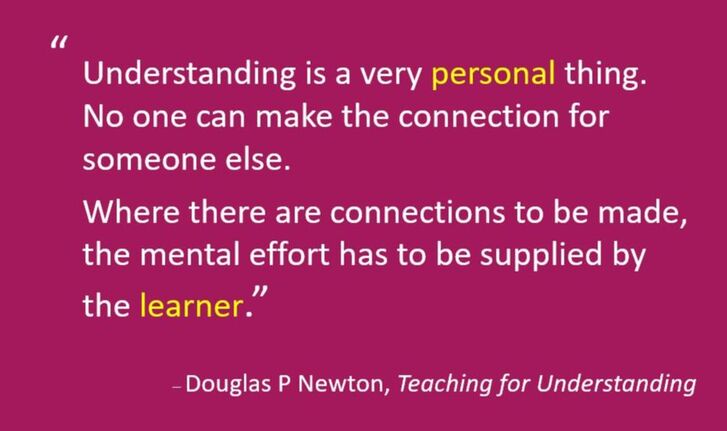
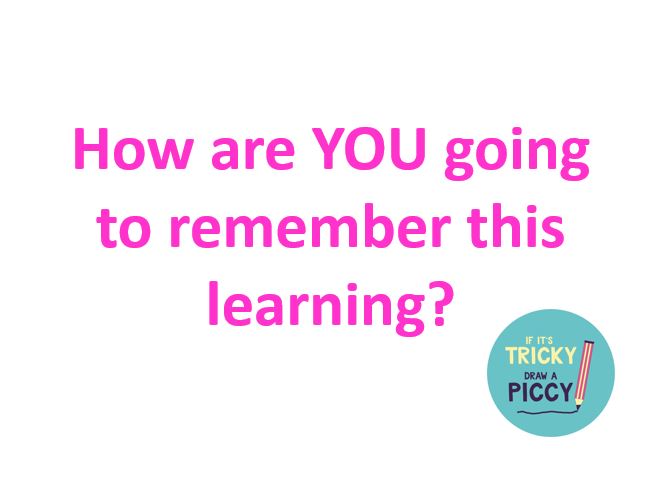

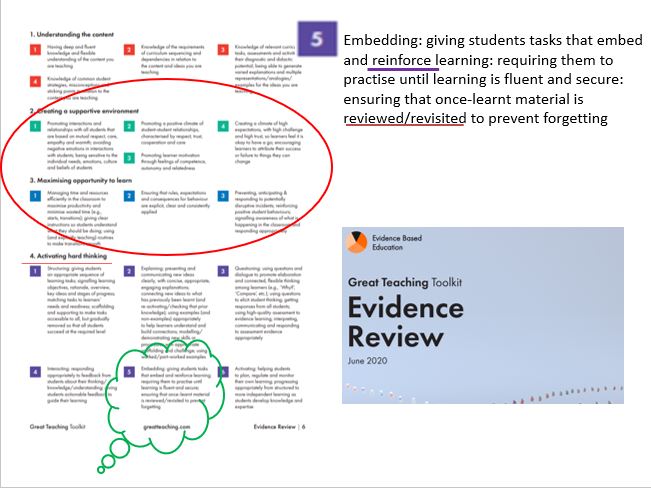
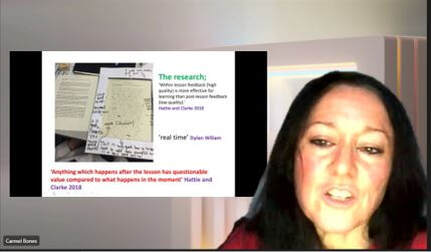
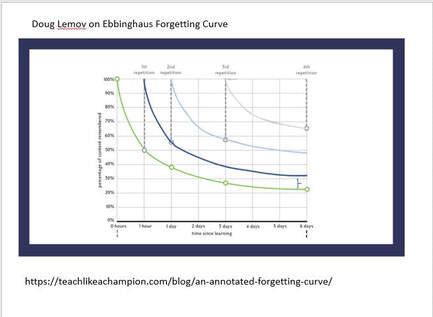
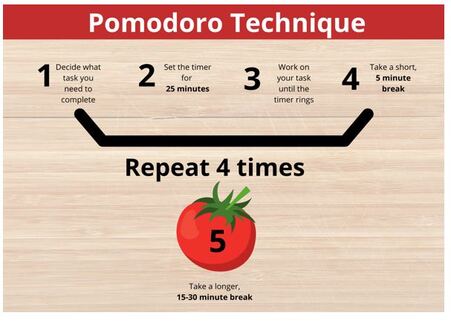
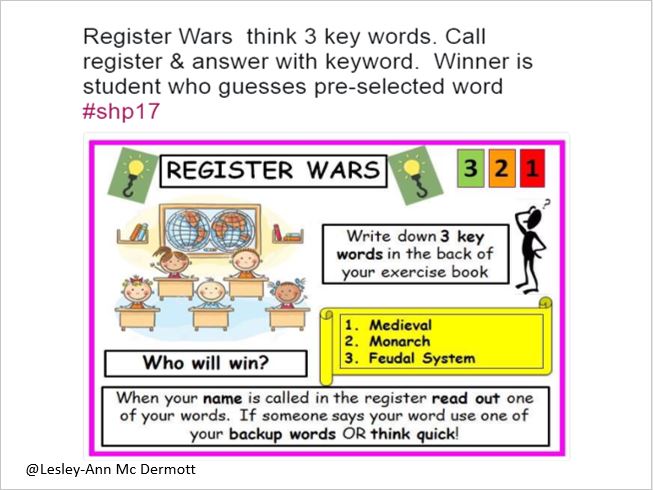
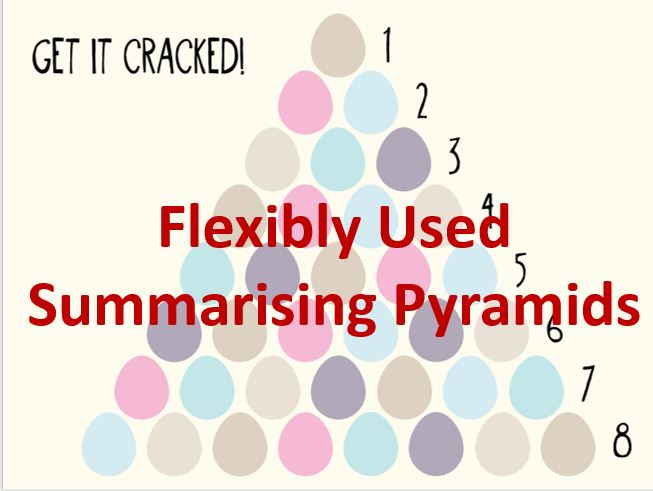
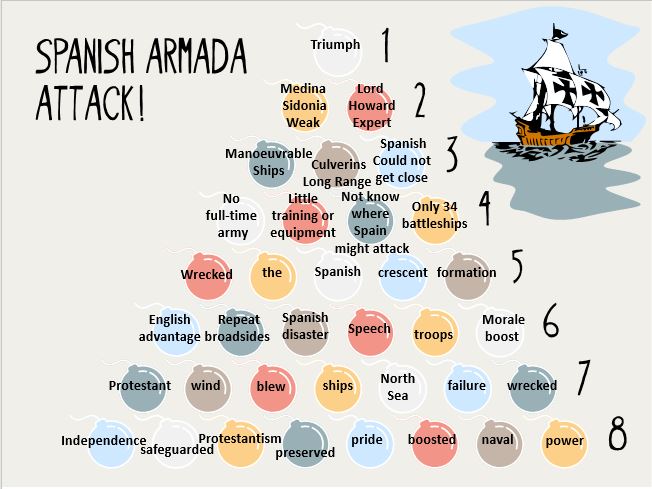
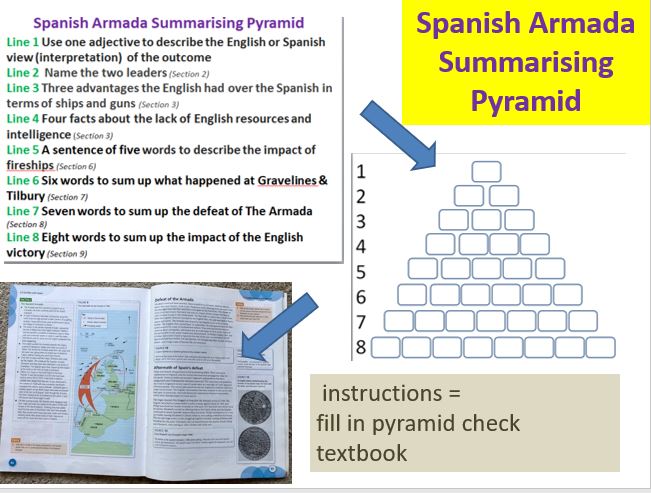

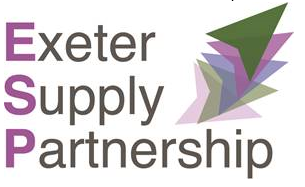
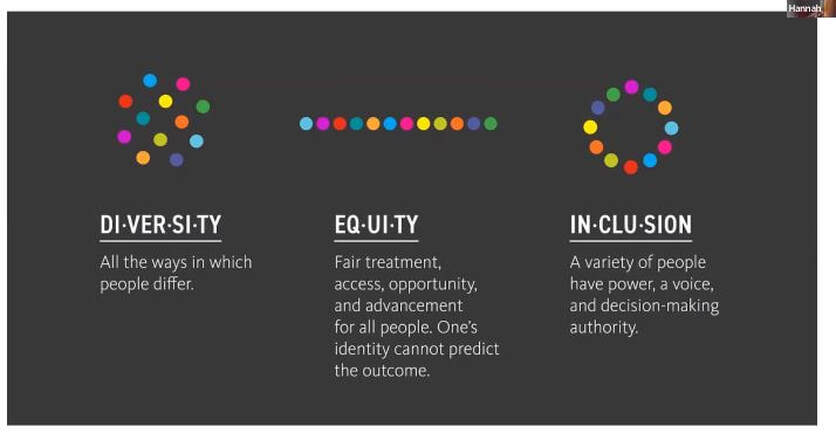
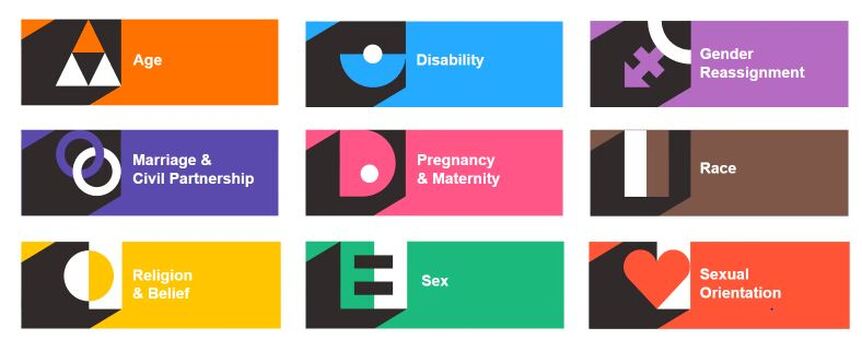
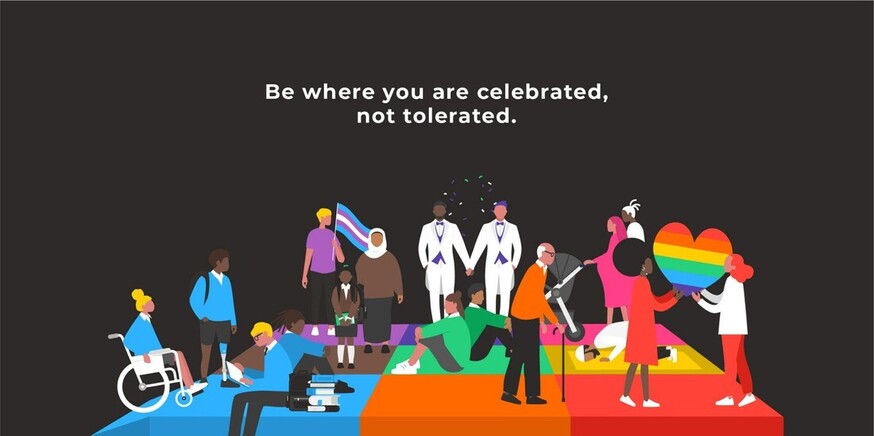


 RSS Feed
RSS Feed





